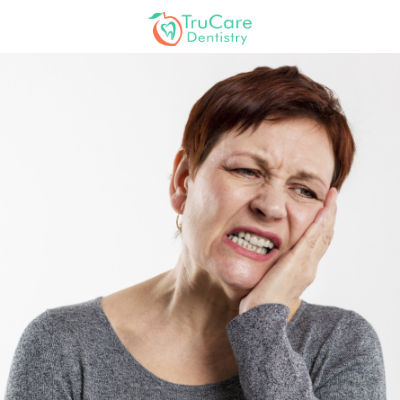
Aging is an inevitable part of life that affects our bodies in numerous ways. Our bodies undergo various changes as we age, and our oral health is no exception. While many individuals are aware of the physical and cognitive changes associated with aging, they may overlook its impact on their teeth and overall oral health. Taking proactive measures to understand and address these changes becomes crucial to maintaining a healthy smile and overall well-being. In this blog post, we will understand how aging affects your teeth.
Common Effects of Aging on Teeth
Here are certain aspects in which aging can impact your teeth:
- Tooth wear: Your teeth could deteriorate naturally over time. The enamel, the teeth’s outermost layer of protection, can gradually erode, leaving the teeth more vulnerable to decay and sensitivity.
- Gum recession: It is a typical issue brought on by aging. The roots of your teeth may become visible as your gums recede with age and become more sensitive to decay.
- Tooth loss: The risk of tooth loss increases as people get older. It can happen due to several things, including dental decay, gum disease, and compromised tooth structure. Your capability to chew food properly, as well as your self-esteem and general quality of life, may be affected by missing teeth.
- Dry mouth: Many older adults experience xerostomia, known as dry mouth. Reduced saliva production can occur due to certain medications, medical conditions, or as a natural consequence of aging. A dry mouth can also contribute to gum disease and tooth decay since saliva helps neutralize acid and wash away food particles.
- Increased susceptibility to oral diseases: Aging can make you more prone to specific oral health problems. Gum disease, tooth decay, and oral infections may become more prevalent if proper oral care is not maintained. Regular oral hygiene and dental check-up practices are essential for preventing and managing these conditions.
- Changes in tooth color and shape: As you age, your teeth may become darker or yellowish. It can be due to enamel thinning, which exposes the dentin layer underneath, known for its yellow hue. Additionally, teeth may change shape or become misaligned, affecting your bite and overall appearance.
- Enhanced risk of gum disease: Older adults are more prone to developing gum disease (periodontal disease) due to a combination of factors, including plaque buildup over time, decreased immune response, and underlying health conditions.
- Weakened tooth structure: Teeth may become more brittle and prone to fractures as we age, especially if they have been previously treated with large fillings or root canal therapy.
- Changes in bite and alignment: Aging can lead to changes in the alignment of teeth and the bite pattern. Teeth may shift or become crowded, impacting both appearance and function.
Following the recommendations below is essential to maintain good oral health as you age.
Recommendations for maintaining Oral health
Here are some recommendations for maintaining oral health that you may find helpful:
- Regular Dental visits: Maintaining routine dental check-ups is crucial, as they allow for early detection and treatment of dental issues. Dentists can provide professional cleanings, identify signs of gum disease, and offer personalized advice for oral care.
- Proper Oral hygiene routine: Brushing teeth twice daily with fluoride toothpaste and using dental floss or interdental brushes can help remove plaque and prevent tooth decay. Using a soft-bristled toothbrush and being gentle while brushing is essential to avoid further enamel erosion.
- Denture care: Proper cleaning and maintenance are vital for individuals with dentures. Dentures should be cleaned daily, removed at night, and stored in a denture solution to prevent bacterial growth.
- Nutritious diet: A balanced diet is essential for oral health. Avoiding excessive sugar and acidic foods and beverages can help to minimize the risk of enamel erosion and tooth decay. Calcium-rich foods, such as dairy products, can contribute to maintaining healthy teeth and bones.
- Hydration and saliva production: Aging can reduce saliva production, increasing tooth decay risk. Staying hydrated using sugar-free chewing gum and drinking plenty of water or saliva substitutes can help combat dry mouth.
Remember, proper oral care and regular dental visits are crucial for maintaining good oral health, regardless of age.
Wrapping Up!
Aging has significantly impacted oral health, affecting tooth structure, gum health, and overall dental well-being. However, by understanding these changes and implementing a proactive approach to oral care, individuals can maintain healthy teeth as they age. Regular dental visits, proper oral hygiene, denture care, a balanced diet, and managing dry mouth are essential steps in preserving oral health. Note that age should not be a barrier to a healthy and confident smile, and with proper care, you can enjoy good oral health throughout your life. However, in case you are wondering about visiting the doctor for your dental needs, contact us for the best dentist in Roswell, GA, or nearby areas such as Sandy Springs, Marietta, Milton, Alpharetta, Dunwoody, or Woodstock; contact (678) 321-7575 or visit our website to book an appointment.
